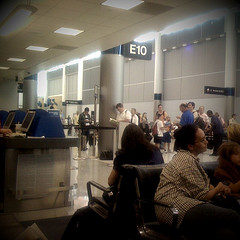 Recently, Andrew Bender, a Forbes’ business travel blogger, published a humorous look at the top hazards for business travelers. While terrorism is often on the minds of American travelers, he makes the point that it’s not the most likely hazard you’ll face.
Recently, Andrew Bender, a Forbes’ business travel blogger, published a humorous look at the top hazards for business travelers. While terrorism is often on the minds of American travelers, he makes the point that it’s not the most likely hazard you’ll face.
In fact, according to Mr. Bender, travelers are far more likely to encounter these travel risks:
- Pickpockets
- Hotel fires
- Slips and falls
- Water-born illnesses
- Location-specific crime
Travel insurance coverage can provide protection for at least some of these risks – specifically the illnesses and injuries you may encounter while traveling (see medical coverage) and the theft of passports or credit cards. Of course, there’s always the risk that your luggage will be delayed or lost as well.
One of the corporate travel risks he doesn’t list is the potential for kidnapping, and businesses and individuals who are interested in kidnap and ransom insurance for corporate employees have a number of options.
Those who frequently travel for business can review our recent post on all-round employee travel protection for information and plans designed to keep business travelers safe.







